
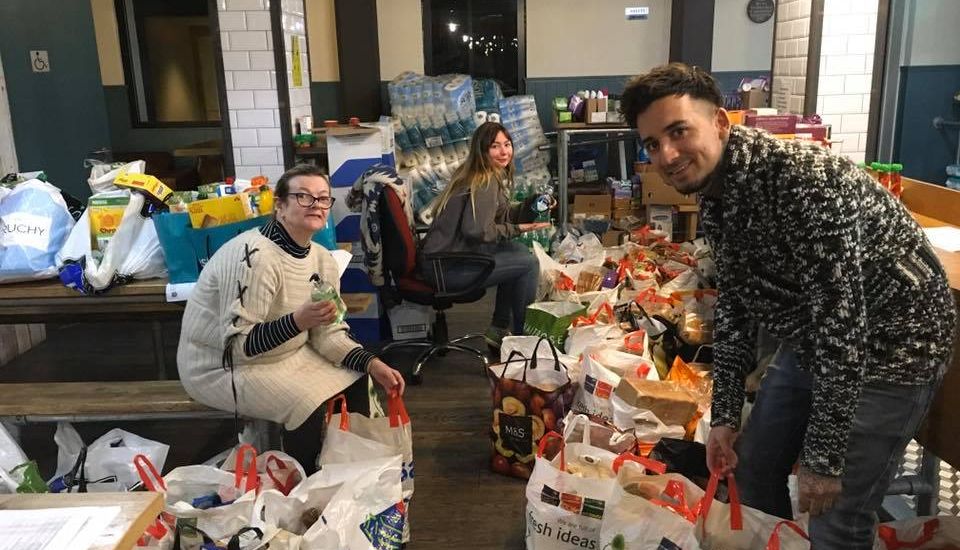

A recent study has found that one in 10 UK charities are facing bankruptcy by the end of the year as they struggle to cope with a £10bn shortfall caused by soaring demand for their services, combined with lost fundraising income due to the pandemic.
The analysis by Pro Bono Economics, an independent charity, says that the virus crisis will prompt a £6.4bn loss of income for charities over the next six months just as demand for extra services – ranging from health to debt advice and social care – piles on extra costs of £3.7bn.
But how have charities in Jersey fared? Fortunately, many - but not all - of organisations with salaried staff have benefited from the payroll support scheme. Others have had to draw on other sources of funding, while smaller charities have relied on their loyal supporters.
Express spoke to four charities to find out how they coped with lockdown and what the future might hold...
We’ve been using the Government Co-Funded Payroll Scheme for Acorn staff, which was really helpful, and our payments for our Service Level Agreements have also remained in place.
With the closure of Acorn as a whole, we were losing over £15,000 a week. We were predicting a significant loss but the payroll scheme certainly softened the blow. The plant nursery, which has its peak season in April/May, took a big hit. Although we opened for sales for a few weeks, it operated at 20% normal capacity.
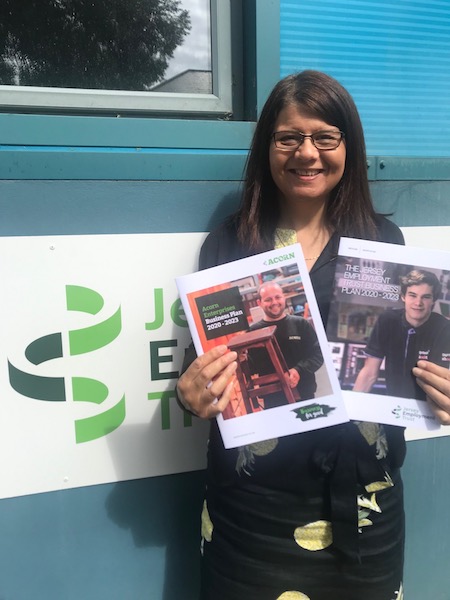
Pictured: CEO, Jocelyn Butterworth
No, we provided them in a different way, via telephone or email and, as soon as we were able to, staff organised distanced walks and activities like beach cleans, instead of people coming to us for projects at Acorn. As soon as we were allowed to open our Job Clubs at Kensington Chambers in town, we did but in a different way. We are providing one-to-one appointments, not drop-ins and not in groups, and that has worked very well and something that will continue.
The business side - Acorn Reuse, nursery and Woodshack - has taken a major hit, but we are hopeful that we can regenerate the business that has been lost.
We had to cover the cost of PPE, which has cost thousands. And at Acorn Reuse we have had to implement new storage systems for donated goods. We moved the drop-off area to an unused space at the back of the building and it has created a separate drive-through area, thus freeing up shop floor space. Now we are planning to make this a permanent fixture.
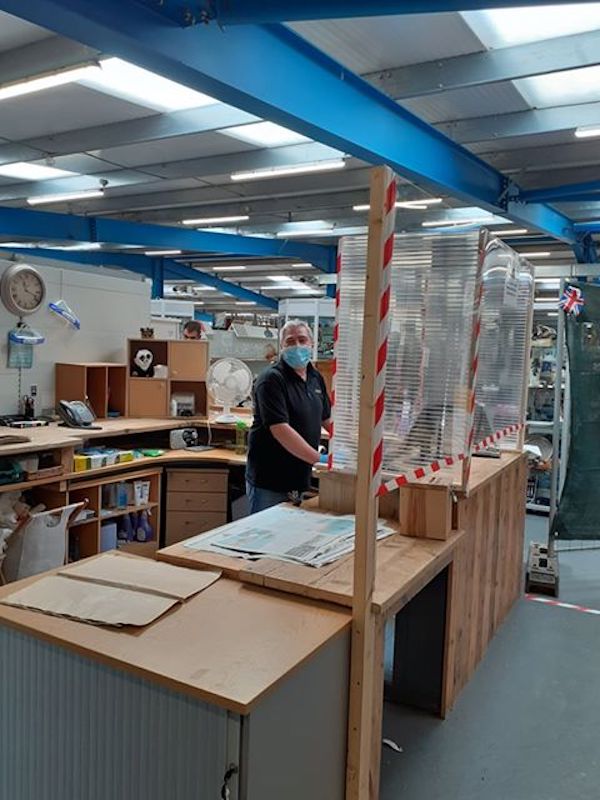
Pictured: The Acorn Reuse Centre operating under covid conditions.
One thing we always do, and which worked very well in lockdown, is working together with other charities. I think many people were surprised that JET took the initiative to mobilise staff in helping with deliveries, supplying up to ten drivers three times a week in conjunction with the Salvation Army food bank (pictured top). We also completed the redesign of our website, which proved to be a great lockdown project.
A lockdown in winter. We should be in a better place organisationally, now that we have more laptops and mobile phones, so that wouldn't be so much of an upheaval. But I am very fearful of the financial impact, and the impact on people’s mental health, given that many of our staff and clients have long-term health conditions and disabilities. And the effect it will have long term on the labour market and the economic regeneration of Jersey as a whole.
We were able to access the Government Payroll Co-Funding Scheme, which paid 80% of JAAR's salaries. We would certainly have found it extremely difficult to continue the service without this help.
Going by last year's figures, we probably lost out on around £3,370 of fundraising. That doesn’t include money raised by individuals, for example those who skydived for JAAR, which we estimate would have raised more than £1,000. We also had to cancel courses and stopped hiring out our rooms.
We have definitely seen a rise in demand as people had time on their hands to think and were not distracted by their usual busy schedules and therefore, they needed help processing events that had affected their lives historically. Also, there were those who were experiencing problems with their relationship during lockdown and parents who were extremely concerned about their children who had disclosed during lockdown that they had been a victim of sexual assault.
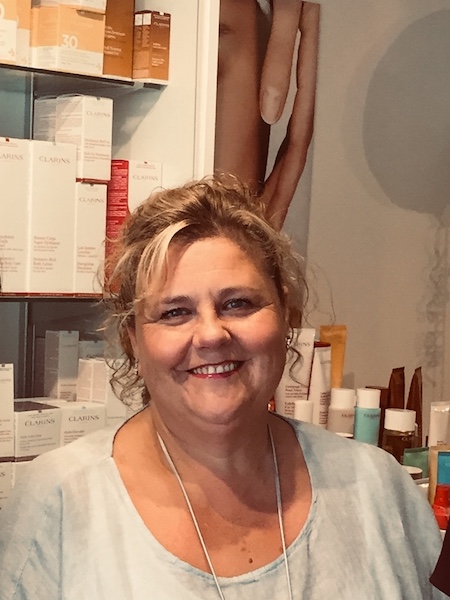
Pictured: Officer Manager, Jayne Gruchy.
The biggest immediate fear is for the Government Payroll Co-Funding to come to an end. Therefore, we are currently in the process of trying to secure grants to cover the two counsellors’ salaries.
To keep our supporters engaged we requested that they send us their favourite lockdown bakes, walks and thoughts. We were not expecting much of a response, but we now have enough to put together a book, which we are in the process of securing funding for to cover the publishing costs and we hope that this will be something that we could raise funds from. It was during this exercise that we took a call from one of our supporters to say that they had been extremely grateful for this little distraction as they had found it very hard working from home due to the isolation. This period of lockdown had given them too much time to think about events that had happened to them in the past.
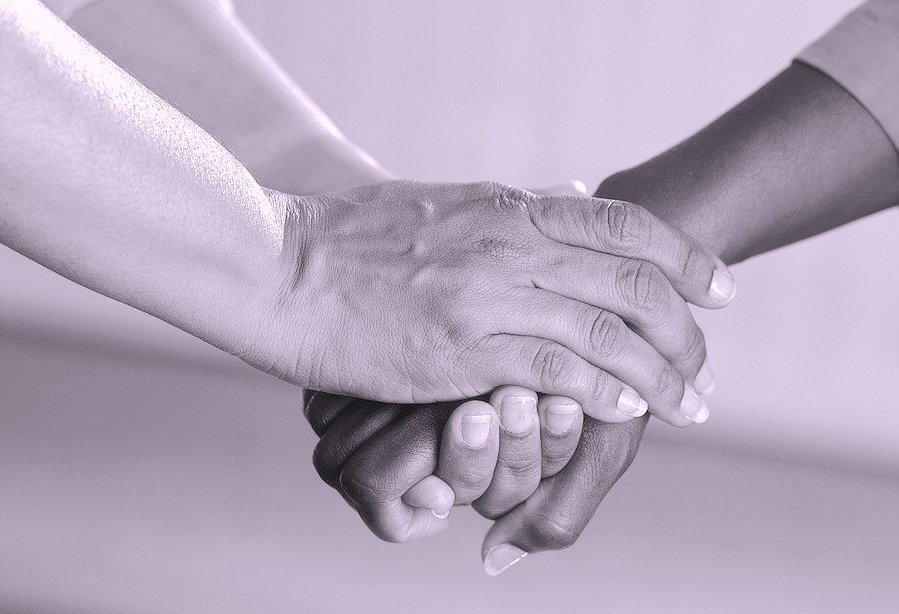
Pictured: JAAR helps survivors of sexual assault and rape.
We certainly could benefit from securing funding to assist with our payroll. We currently have three part-time staff and although the salary bill is not great to secure assistance with this would mean that we could continue to focus and fundraise to provide essential training for our volunteer counsellors and also to ensure that we can continue to work with schools with our RAP Project..
We have seen a major reduction in donated humanitarian aid items, such as clothing, footwear and bedding. When it comes to money, we lost income from volunteers doing car-lot sales, but other money came in. In fact, when supporters learned of the hardship in Romania, they were fantastically generous, enabling us to send two lots of money to help with food and hygiene products.
We had to stop packing and palletising relief aid during lockdown and postpone our April aid consignment. We have made the decision to reduce the number of aid consignments this year from three to two. Volunteers are now back working observing the physical distancing requirements and very thankful for the good weather which makes it easy to have doors open and good ventilation.
During lockdown, Romanian social workers asked for our help urgently as they had no resources to assist those in deepest need - people unable to obtain regular employment who usually obtain day work or if that fails will travel to the nearest town to beg or rummage in dustbins to feed themselves and their families each day.
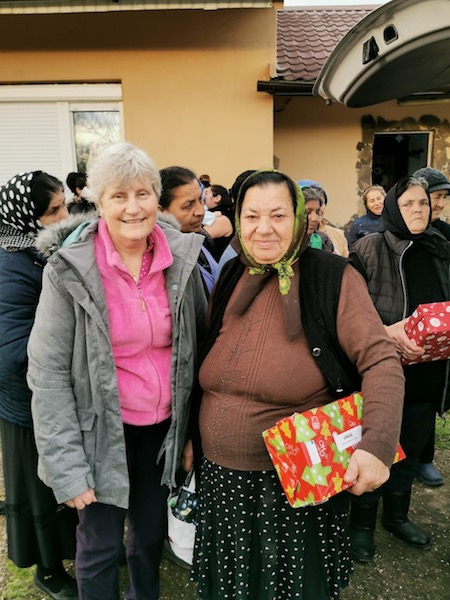
Pictured: Founder Rose Helie-Pallot in Romania.
Longer term, we face a huge amount of uncertainty as we do not know if it will be feasible to continue to send relief aid after the Brexit rules come into effect. Our plans for 2021 are only pencilled in and liable to change.
During lockdown the packing volunteers stopped work altogether as they were unable to come to our packing loft. Our usual faithful volunteers continued with knitting blankets and sewing things like pencil cases and toiletry bags for shoeboxes and covering shoe boxes with paper. I believe being able to make things for Mustard Seed during the enforced slower pace of life was really therapeutic for some people.
Lockdown in Romania forced our homework clubs to stop as the schools closed but hopefully, they will restart in September. The poorest who live day by day were badly affected and I cannot tell you how proud I am of Jersey people’s generosity when they heard of the need. The outlying villages were bewildered and ignorant of what was going on so as well as helping with food parcels the social workers found they needed to educate as well.
Pictured: Children with their Christmas shoeboxes.
We will be launching our Christmas shoebox appeal next month and very much hope that, in spite of the difficulties and hardships people have experienced over here, the people of Jersey will respond generously.
We have 209 members of staff but we did not qualify for the Government co-payment scheme because our residents are in receipt of long-term care. We applied three times but each time it was declined. We also had staff shielding so we had to bring in extra people so it became a very difficult time: we were certainly not going to stop paying shielding staff because that would go against our ethos. Fortunately, we successfully applied to the Jersey Funders Group, which helped us to supplement the salaries of staff.
Before the lockdown, the Government did agree to continue to pay for the block purchases of eight respite beds, despite knowing that they would not be accessible during lockdown.
Fortunately, we have not had to dip into reserves. We cancelled holidays and reworked the rotas, so staff were working for 48 hours followed by five days off. We also found that staff sickness dropped to virtually nothing, which made rostering a lot less complicated.
We had to stop our respite services during lockdown, which was inevitable as all our residents were in the ‘moderate’ to ‘high risk’ groups, when it came to susceptibility to the virus. Social distancing just would have been impossible. The vast majority of families understood that, but I know it wasn’t easy for them, even if family members were at home more. We actually found some residents liked the structure of lockdown and being a close family unit.
We were not impressed with the Government at the beginning, especially when the Health Minister said that the care sector should have been better prepared and had their own PPE supplies. There was a huge backlash within the Jersey Care Federation because we were simply asking for support but at the first opportunity, the Government threw us under a bus. It was disgusting that the Minister blamed the care sector.

Pictured: Managing Director at Les Amis, Shaun Findlay.
Jersey was lucky: we had a weak strain the first time around. I am worried that the Government thinks it’s done a good job. If we get a second wave this winter, the chances are it will be more virulent, and we will get more deaths. Obviously, I hope I’m wrong.
I was both amazed and heartened by the resilience of our staff and the people we support. Because there were fewer shift changes, there was a lot more stability in our homes. Our residents liked that and we found challenging behaviour dropped. We’ve learned from that and while we’ve had to move back to the previous rota, we will flick back to that model if needs be.
Corona virus has only served to highlight the need for an elderly and complex needs nursing care unit in the Island, which Les Amis wants to build and run. We are having ongoing discussions with Health but what is key is finding a plot of land to build it on. This is just the sort of provision that the Government should be commissioning out to the third sector, leaving it free to focus on the high-end projects.
Comments
Comments on this story express the views of the commentator only, not Bailiwick Publishing. We are unable to guarantee the accuracy of any of those comments.